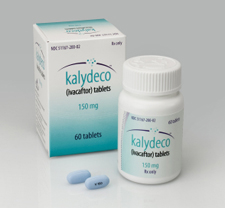The practice of medicine historically straddled between being a business profession and a charitable endeavor. When government took it over — nearly in one big gulp, in Great Britain— that uneasy mix mutated, leaving us with the occasional bout of stark horror.
A British woman suffering from cystic fibrosis has been denied a new wonder drug that the manufacturer has agreed to provide for free, while the National Health Service gets around to approving it. But NHS says no.
Her family say she will die soon without it, yet managers at Heartlands Hospital in Birmingham say it would be unethical to provide the drug under the deal, only for it to be withdrawn later.
The drug, Kalydeco also known as ivacaftor, costs £182,000 per patient per year, and works for five per cent of people with CF who have a certain defective gene, around 270 people in England.
It corrects a malfunctioning protein which causes the characteristic build-up of fluid and mucus in the lungs that causes devastating damage.
A long shot, apparently. But is that any reason to deny a charitable offer?
These kinds of deals get offered and accepted in America all the time.
But then, when a private insurance company here decides not to cover some drug or treatment, that’s an excuse to excoriate American capitalism — while forgetting about all the characteristically American workarounds. But in “single-payer” Britain we see the state acting as a proverbial “death panel.” The outcry against socialism should be just as loud, if not louder.
This is Common Sense. I’m Paul Jacob.